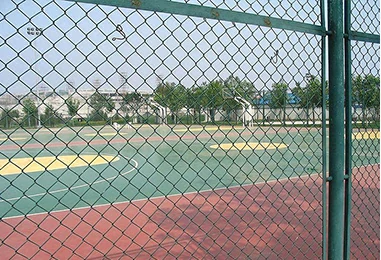 TEL:
+86-13102802206
TEL:
+86-13102802206
 Email:
fencenetting@china.com
Email:
fencenetting@china.com
 Language
Language
 TEL:
+86-13102802206
TEL:
+86-13102802206
 Email:
fencenetting@china.com
Email:
fencenetting@china.com
 Language
Language


Understanding the Costs of Coated Chain Link Fencing
When considering fencing options for your property, a coated chain link fence emerges as a popular choice due to its durability, versatility, and affordability. A coated chain link fence is essentially a traditional chain link fence that has been coated with a protective material, typically vinyl or polyester, to enhance its aesthetic appeal and longevity. While the benefits are clear, many potential buyers are left wondering about the costs associated with installing a coated chain link fence. This article will break down the various factors that influence the cost, helping you make an informed decision.
Factors Influencing Cost
1. Material Costs The initial cost of a coated chain link fence depends significantly on the materials used. The price of the chain link mesh, the gauge (thickness) of the wire, and the type of coating (usually vinyl or polyethylene) all play a crucial role. Generally, a heavier gauge wire will be more expensive, but it offers enhanced durability. The color of the coating can also affect the price; common colors like black and green tend to be more affordable, while less common colors may be priced higher.
2. Height and Size of the Fence The size and height of the fence directly impact the total cost. Standard heights for residential purposes range from 3 to 6 feet, but taller options are available for commercial security. The more footage you need to enclose, the higher the cost will be, as each section of fencing needs to be purchased and installed.
3. Labor Costs Labor costs can vary widely based on location, the complexity of the installation site, and the contractor you choose. Installing a coated chain link fence might seem straightforward, but factors like uneven terrain, the need for additional gates, or special installation techniques can increase labor costs. It’s advisable to get multiple estimates from contractors to ensure you are getting a competitive rate.
4. Accessory Costs Accessories such as gates, post caps, and privacy slats can add to the overall cost. If you are looking for enhanced security, a more robust locking mechanism may also be necessary. Each of these components should be factored into your total budget.

5. Permits and Regulations Depending on your local zoning laws, you may require permits before installing a fence. The costs of permits can vary, and in some areas, failure to secure the necessary permissions could lead to fines, so it’s vital to check local regulations. Some homeowners may also choose to hire professionals for this process, adding another layer of cost.
Average Cost Estimates
On average, the cost for a coated chain link fence ranges between $10 to $30 per linear foot, including materials and installation. For a typical 150-foot fence, you could expect to pay anywhere from $1,500 to $4,500. However, this is a rough estimate, and actual prices can vary based on the factors mentioned above.
Long-term Considerations
While the initial investment in a coated chain link fence might seem significant, it's essential to consider the long-term benefits it provides. Coated chain link fences are known for their resistance to rust and weathering due to the protective coating, which can reduce maintenance costs over time. Additionally, these fences do not warp, splinter, or fade as wooden fences can, making them a durable long-term solution for any property.
Conclusion
Choosing a coated chain link fence is an excellent way to secure your property while maintaining an affordable budget. Understanding the various factors that influence the costs—from material choices and labor to sizing—will empower you to make smart financial decisions. By considering both the immediate expenses and the long-term benefits, you can ensure that your investment in a coated chain link fence aligns with your needs and expectations. Whether for residential or commercial use, this fencing option remains a versatile and cost-effective choice that stands the test of time.